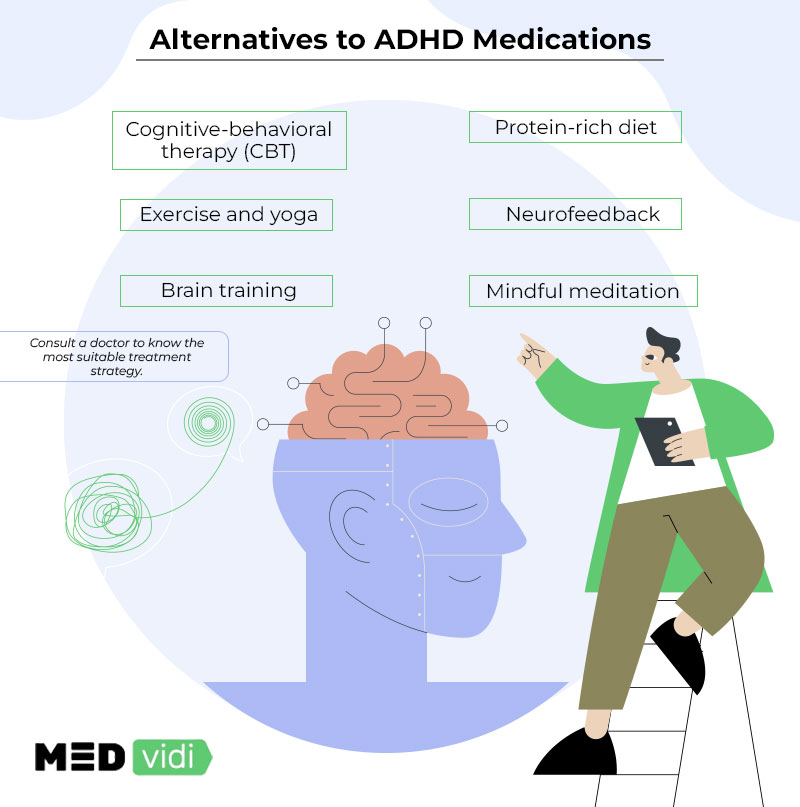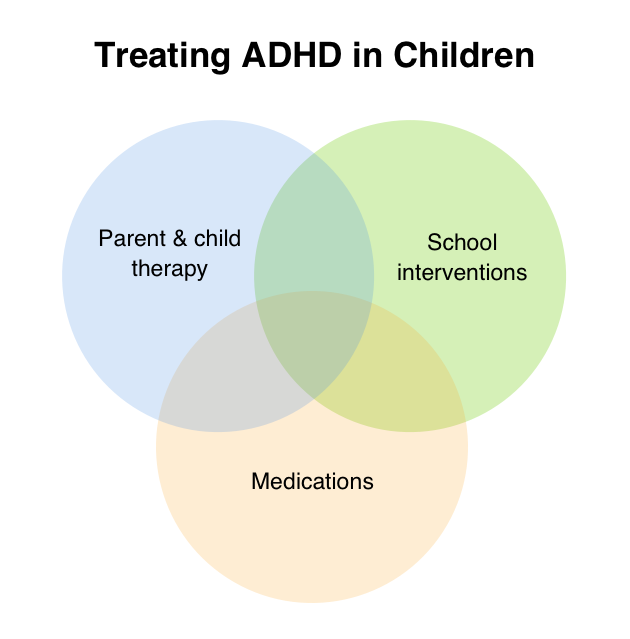Exploring Reliable ADHD Therapy Alternatives for All Ages
The intricacies of Attention Deficiency Hyperactivity Condition (ADHD) present one-of-a-kind obstacles across different age groups, necessitating a thorough exploration of efficient treatment choices. A combination of behavioral therapies, medicinal interventions, and way of living modifications has shown assurance in attending to the varied requirements of individuals with ADHD.
Understanding ADHD and Its Influence
Attention-Deficit/Hyperactivity Condition (ADHD) is a neurodevelopmental problem characterized by persistent patterns of inattention, attention deficit disorder, and impulsivity that can significantly affect various aspects of a person's life. It typically manifests in childhood years, although signs can persist right into adulthood. The core signs and symptoms of ADHD can interfere with educational performance, prevent social communications, and make complex work undertakings.
Individuals with ADHD commonly battle with preserving focus on jobs, organizing activities, and following up on instructions, which can cause scholastic underachievement (Depression Treatment). In social contexts, impulsivity may cause problems in creating and maintaining partnerships, as individuals might disrupt conversations or make hasty decisions without thinking about repercussions
The variability in sign discussion indicates that ADHD can influence individuals in a different way, necessitating a tailored strategy to management. Comprehensive understanding of ADHD's nature and implications lays the groundwork for discovering appropriate therapy alternatives tailored to each individual's demands.
Behavioral Therapies for ADHD
Numerous behavior therapies have been established to effectively resolve the challenges associated with ADHD, concentrating on modifying particular actions and fostering necessary skills. Amongst the most recognized techniques are cognitive-behavioral therapy (CBT), moms and dad training, and social abilities training.
CBT helps people recognize and alter negative idea patterns and behaviors, promoting an extra favorable outlook and improved self-regulation. This treatment commonly includes practical approaches for handling impulsivity and improving company. Parent training programs empower caretakers by equipping them with strategies to strengthen positive actions and set consistent limits, which can be particularly advantageous for youngsters with ADHD.
Social skills training is an additional essential component, mentor individuals with ADHD exactly how to interact properly with peers - Depression Treatment. This method often entails role-playing and feedback to boost communication, teamwork, and conflict resolution abilities
Including these behavioral treatments into a thorough treatment strategy can considerably boost functioning and lifestyle for people with ADHD. Eventually, the performance of these therapies depends upon customized techniques that consider the special needs of each individual, thereby promoting resilience and versatility in day-to-day live.
Medicine Options Available
For many people with ADHD, medication can play a substantial function in managing signs like this and symptoms and improving total performance. The two key classifications of medications suggested for ADHD are energizers and non-stimulants.
Stimulants, such as methylphenidate and amphetamine-based medicines, are the most frequently used treatments. These medicines use this link work by enhancing the levels of neurotransmitters, specifically dopamine and norepinephrine, in the brain, which aids boost attention and reduce impulsivity and attention deficit disorder. They typically produce fast results, making them a recommended choice for lots of people.

It is important for medical care providers to perform a detailed analysis to establish one of the most ideal medicine based upon private demands, visit this page clinical history, and prospective negative effects. Normal follow-up and tracking are also vital to guarantee the performance of the selected treatment and to make any kind of necessary modifications.
Lifestyle Modifications to Consider
Handling ADHD successfully extends past drug, as way of life adjustments can substantially boost general health and signs and symptom control. Incorporating structured regimens is essential; consistent routines help people with ADHD manage their time properly and reduce feelings of bewilder.
Normal physical task is an additional essential part. Workout not just aids to improve concentration however likewise enhances mood and lowers anxiety degrees. Activities such as yoga exercise or group sports can be specifically beneficial, advertising both fitness and social communication.
Nutrition also plays a critical role. Depression Treatment. A well balanced diet regimen abundant in omega-3 fatty acids, whole grains, and lean healthy proteins can add to enhanced focus and cognitive function. Limiting sugar and refined foods is recommended, as these can exacerbate hyperactivity and impulsivity
Rest health is vital for managing ADHD signs. Establishing a regular rest routine and developing a relaxing setting can enhance sleep top quality, resulting in better attention and psychological law.
Alternate and Holistic Methods
Alternate and all natural strategies to ADHD treatment use a diverse variety of choices that match typical methods. These methods commonly focus on way of living modifications, dietary treatments, and healing practices that aim to boost total health while addressing ADHD signs and symptoms.

Mindfulness and behavior modifications are also obtaining traction as alternative interventions. Practices such as yoga, reflection, and cognitive-behavioral therapy can grow self-regulation and boost interest. These approaches support emotional resilience, which is especially beneficial for people with ADHD.
Organic supplements, such as ginkgo biloba and ginseng, are often discovered; however, it is critical to seek advice from medical care professionals prior to incorporating these into treatment strategies. While option and alternative strategies can provide beneficial assistance, they ought to ideally be used in combination with evidence-based therapies to accomplish ideal results for taking care of ADHD throughout every ages.
Final Thought
In recap, efficient ADHD treatment requires a detailed strategy that includes behavioral treatments, medicine, lifestyle modifications, and holistic methods. This multifaceted method emphasizes the relevance of individualized care in attending to the varied demands of people with ADHD throughout all age groups.